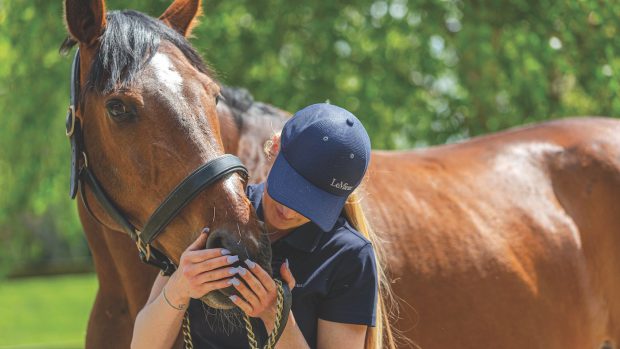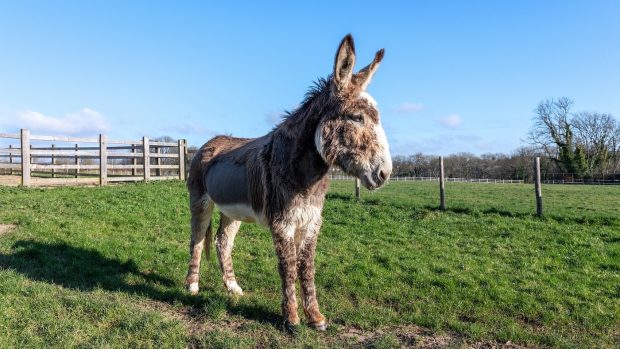A new faecal test for horses could help reduce the risk of sand colic, its creators believe.
Westgate Labs is offering the test, conducted in a similar manner to its faecal worm egg counts, to monitor levels of sediment, aiming to help owners identify whether horses are at risk.
If horses ingest sand, which can occur while grazing or eating from the ground, it can accumulate in the colon. It then irritates the lining of the gut and can cause impactions, which can be fatal.
Westgate Labs’ consultant vet Carolyn Cummins said: “Horses presenting with sand colic usually have a history of grazing on sandy soils, drinking from natural water courses, being kept on restricted grazing or fed in a ménage.
“For equines in these situations a faecal sample can be taken at intervals through the year and checked for sand to assess the levels in the gut.”
As with the faecal worm egg counts, the lab will send sample collection pots. Once returned, in prepaid envelopes, the samples are tested, and a percentage volume of sand calculated.
“Test results from Westgate are expressed as a percentage to give a quantitative measure of the level found,” Ms Cummins said. “While it’s not desirable to find any sand in faeces, some healthy horses are not affected by a small amount. For this reason positive tests should be discussed with your vet on a case by case basis.
“Together you can determine whether other symptoms such as diarrhoea/colic are also present and devise an appropriate management and/or treatment protocol.”
Two sample kits are included in each test so if the first sample proves negative for sand, a second can be tested to ensure this is not a false negative. The second kit also means owners of horses who do show sand is present can re-test to check whether management changes put in place are having an effect.
Continues below…

Subscribe to Horse & Hound magazine today – and enjoy unlimited website access all year round

Horse undergoes surgery to remove 15kg feed mass from stomach
Three vets worked to remove the lump of dried feed matter from Bertie’s stomach

Horse’s life saved by vet after ‘incredibly long’ bramble got stuck in his throat
‘It’s definitely worth other horse owners knowing that this can happen’
Westgate Labs director of operations Kristy Hodgson said: “The test itself is a simple sedimentation technique which horse owners can of course conduct at home. We have introduced this service in response to requests from customers who would prefer to send their samples to the laboratory. Conducting them in the lab enables us to generate a consistent quantitative result so levels can be easily monitored over time.”
If sand is present, managing techniques include steps to minimise ingestion, not feeding from the ground, overgrazing paddocks or allowing access to silted water sources.
A diet high in forage can help clear any sediment through the gut. Psyllium, fed as a straight herb or in a product, is also believed also to benefit horses, by increasing gut motility.
“Regular testing along with husbandry changes will help to monitor the sand levels in the gut and manage the risk of colic,” a Westgate Labs spokesman said. “Owners should always consult their vet if they have any health concerns about their horses.”
For all the latest news analysis, competition reports, interviews, features and much more, don’t miss Horse & Hound magazine, on sale every Thursday.





